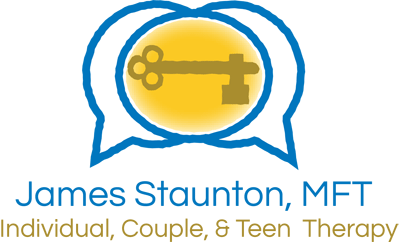|
3636 4th Avenue, Suite 205 San Diego, California 92103
(619) 203-6307 |
Are you sick of feeling stuck and frustrated making decisions?
Do you feel you need to go deeper to understand what has your life in a holding pattern?
Is Intensive Therapy right for you?
Typically we think of psychotherapy as happening once a week. On the other hand, full-on traditional Psychoanalysis is usually five sessions per week, and can last for many years.
Between these extremes is a more intensive therapy (technically called Psychoanalytic Psychotherapy), which is meant to be Psychoanalysis' answer to "short term" therapy. It involves much of the same emphasis and some of the same techniques as Psychoanalysis (like old-school Freudian therapy, which is practiced in a modernized, more refined way today), except for several key differences: no use of "the couch"- so therapist and patient sit across from each other and are face to face. Also, sessions are usually scheduled for at least twice a week, and not more than three times a week.
In addition, patients get much more feedback and have a more natural interaction with the therapist than in an traditional Analysis. So the flow and interaction is more like what you might expect.
Also, like in Analysis, the therapist does not share much about him/herself, leaving the patient free to imagine what the therapist might be thinking, or e.g., what kind of life the therapist lives outside the office.
This allows the patient to put onto the therapist their feelings held onto from other important relationships in their past (parents, siblings, grandparents, etc.), allowing for examination and working through with the therapist. Often this is the only way to approach and change these important emotional remnants from the past. Intensive therapy deals with childhood issues which effect current life and may include dream work (see Dream Work).
Why do intensive work?
Once a week therapy is appropriate for simpler issues, and is frankly what the Insurance Companies prefer (and even then, only for a few sessions). The problem is, some issues need more intensity, and with more frequency of sessions, more intensity of work comes about. After a full week between sessions, often what was talked about in the last session is lost or watered-down in our minds. So it may be difficult for the therapy to gather the steam needed to really get at deeper-set issues.
Making real change is sometimes not as easy as we might hope. If other therapy attempts, medications, and other efforts to change haven't brought the desired effect, you may want to try more intensive treatment. This level of work seems most appropriate for chronic relationship problems, a lack of enjoyment and involvement in life, a yearning for self-growth and renewal, and childhood problems that impact adult life. Its the best therapy approach for getting to the root of problems, and making long lasting, permanent changes.
For a good article and discussion of the modern state of Psychoanalytic work and theory, please see this article in Scientific America by Jonathan Shedler called "Getting to Know Me".
Once a week therapy is appropriate for simpler issues, and is frankly what the Insurance Companies prefer (and even then, only for a few sessions). The problem is, some issues need more intensity, and with more frequency of sessions, more intensity of work comes about. After a full week between sessions, often what was talked about in the last session is lost or watered-down in our minds. So it may be difficult for the therapy to gather the steam needed to really get at deeper-set issues.
Making real change is sometimes not as easy as we might hope. If other therapy attempts, medications, and other efforts to change haven't brought the desired effect, you may want to try more intensive treatment. This level of work seems most appropriate for chronic relationship problems, a lack of enjoyment and involvement in life, a yearning for self-growth and renewal, and childhood problems that impact adult life. Its the best therapy approach for getting to the root of problems, and making long lasting, permanent changes.
For a good article and discussion of the modern state of Psychoanalytic work and theory, please see this article in Scientific America by Jonathan Shedler called "Getting to Know Me".
The information offered on this website is to be used for educational purposes only and not as a substitute for psychotherapy. Please consult a mental health professional to address your specific needs. If you are experiencing an emergency, call the San Diego Crisis & Access Line at 1-800-479-3339.

